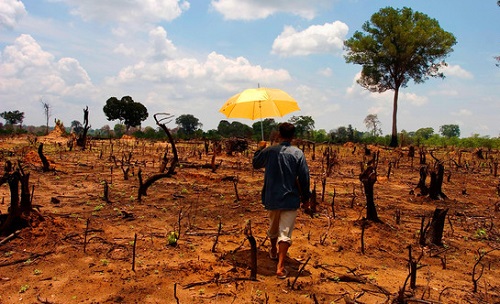Companies Failing To Replace Trees Felled During Projects
Source: Vientiane Times
All companies carrying out projects in Laos which resulted in deforestation are required to plant trees to offset the loss, forestry officials and researchers have stated.
But less than 10 percent of companies in question pursued the country’s laws and regulations, causing great loss in forestry resources over recent decades.
A researcher from the National Agriculture and Forestry Research Institute (NAFRI), Dr Palikone Thalongsengchanh, told Vientiane Times yesterday that many companies were only interested in cutting down big trees, without caring about Lao forests.
“Some companies have carried out projects solely with an aim to cut trees,” he said, saying that Laos had lost enormous areas of woodland over the past years devastating ecosystems.
Indeed, planting trees is part of the obligations for companies operating in Laos to compensate forest cut down to pave the way for the construction of their projects, notably hydropower, mining and other mega projects.
Deputy Minister of Agriculture and Forestry Mr Thongphat Vongmany commented yesterday that laws and regulations related to this matter shall be enforced strictly to ensure all companies fulfilling their obligations.
According to the law, those carrying out concession projects which permanently converted woodland areas into other classifications must plant trees to offset the areas lost.
Therefore, projects temporarily carried out in woodland areas must plant trees after their projects ended.
Mr Thongphat called for government sectors to take this matter into account before approving investment projects and pledged to collaborate with other sectors to ensure all companies met their obligations.
Currently, forests covered only roughly 47 percent of the country’s land area and the government plans to increase this to 70 percent (around 17 million hectares in total) by 2020.
This year the Ministry of Agriculture and Forestry planned to encourage other government bodies and the private sector to plant about 24,000 hectares of trees and reforest over 200,000 hectares for environmental protection areas.
Prime Minister Thongloun Sisoulith also issued a ban on timber exports in a move to minimise loopholes for illegal logging.
The government announced forestry closure nationwide to review wood quotas granted in the past year.
Forests play an important role in sustaining water supplies, protecting the soils of important watershed areas and in minimising the effects of catastrophic floods and landslides.
Most forestry loss is due to slash and burn cultivation, development projects and illegal logging triggered by strong demand for timber in both Laos and abroad.
Dr Palikone said the loss of forests would affect Laos both short and long term given that the country will have to spend large sums of money assisting people affected by natural disasters.

